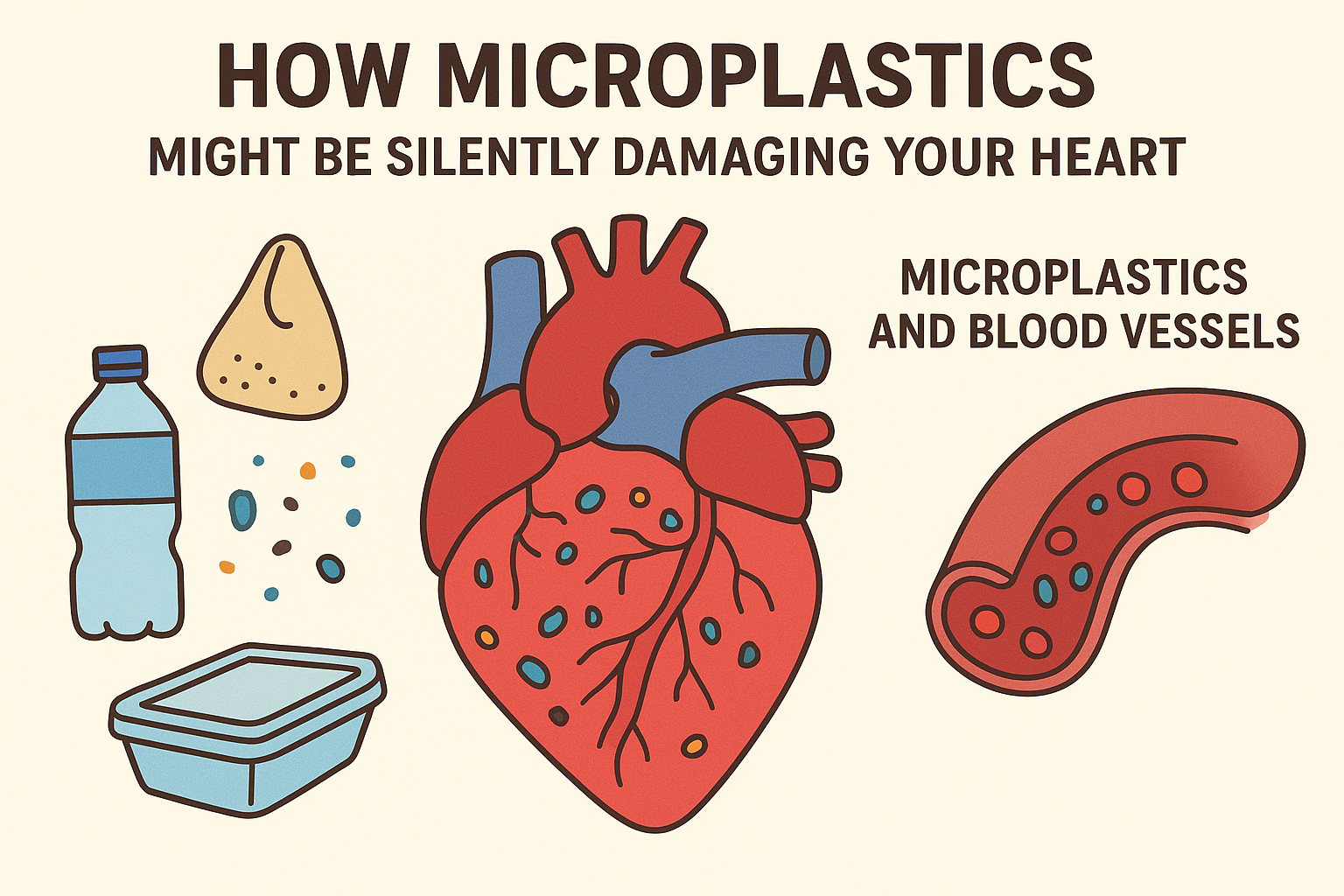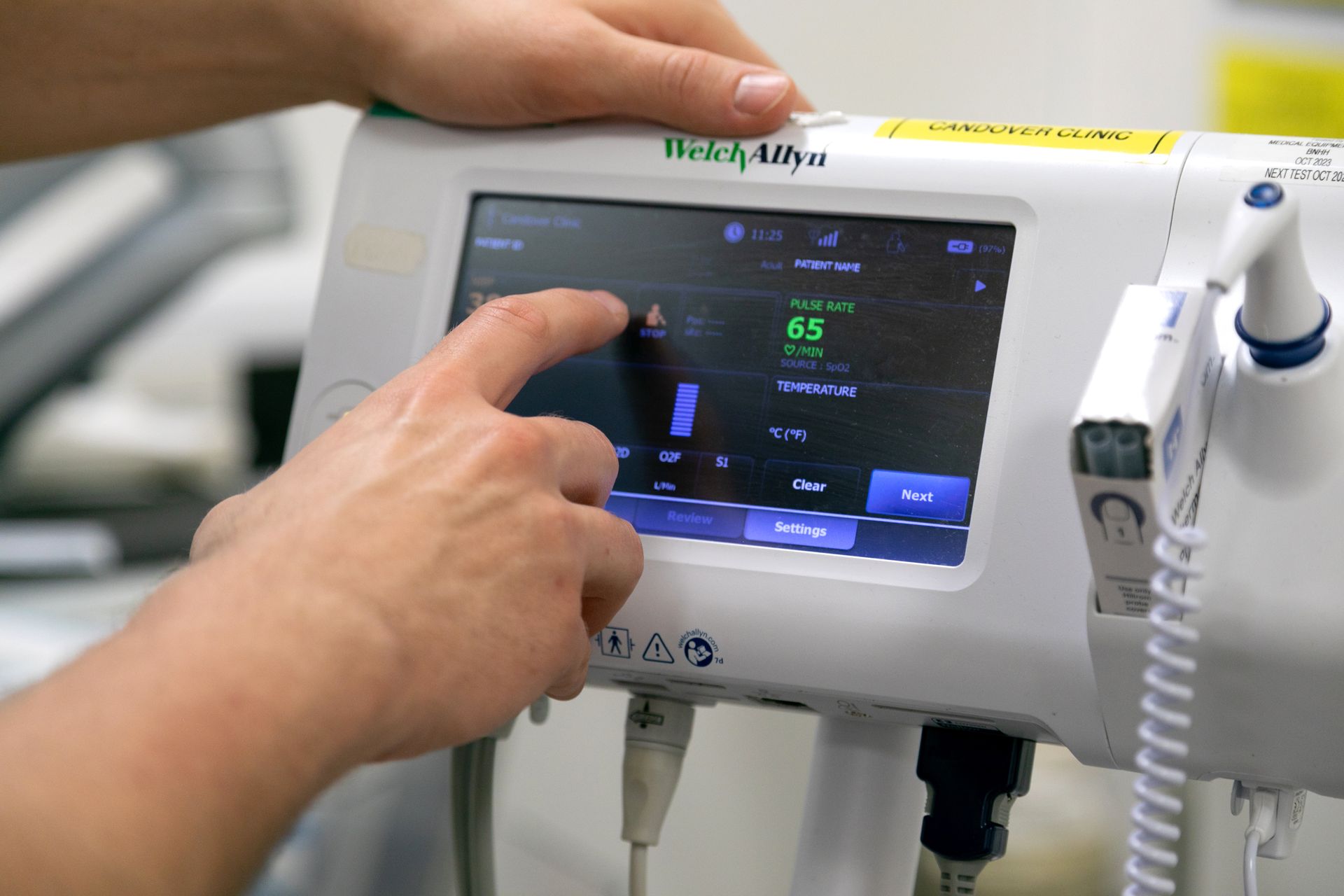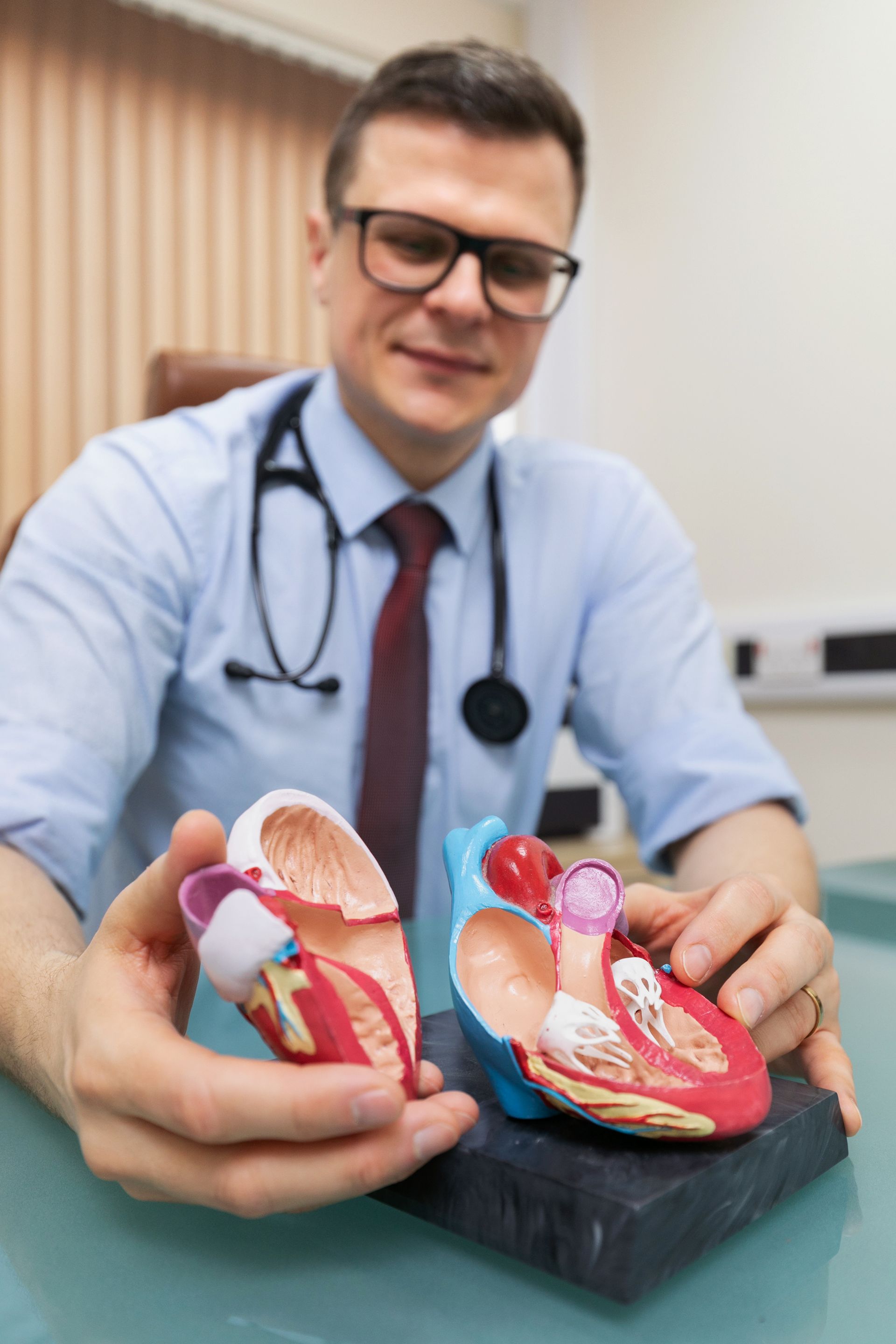Are the Blood Pressure Cuffs Misleading You? White Coat Syndrome

Ever heard of white coat hypertension (also called white coat syndrome)?
It’s when your blood pressure shoots up only at the doctor’s office because you’re nervous — but it’s normal the rest of the time.
This is very different from real (sustained) hypertension, where blood pressure is always high, no matter where or when it’s measured.
Understanding the difference helps us doctors avoid unnecessary medication and ensures the right people get treatment.
We will also answer several fascinating questions:
- How many people have high blood pressure?
- Can eating tomatoes help lower blood pressure?
- Are mobile phones linked to high blood pressure?
- Can ultra-processed foods raise your blood pressure?
- Are young people also at risk?
- Does the duration of high blood pressure matter?
- How does salt impact blood pressure?
- Is there a link between snoring and high blood pressure?
What is White Coat Hypertension?
White coat hypertension happens when your blood pressure is only high at the doctor’s office or at surgery/clinical setting.
About 15–30% of people who show high blood pressure at the clinic actually have normal blood pressure elsewhere.
It’s more common in women, older adults, nonsmokers, and people newly diagnosed with mild hypertension.
Why it matters: Misdiagnosing it as real hypertension can lead to unnecessary lifelong treatment, side effects, and even insurance issues.
https://www.ahajournals.org/doi/10.1161/hypertensionaha.113.01275
What is Real (Sustained) Hypertension?
Unlike white coat hypertension, sustained hypertension means your blood pressure is always high — at home, at work, everywhere. This puts real strain on your heart and blood vessels and increases your risk of heart attack, stroke, and kidney disease.
Blood Pressure Numbers Explained:
- Optimal: ~120/80 mmHg
- High-normal (pre-hypertension): 120–140/80–90 mmHg
- Hypertension:
- Stage 1: 140–160/90–100 mmHg
- Stage 2: 160–180/100–120 mmHg
- Stage 3: >180/>120 mmHg → urgent medical review
https://www.bhf.org.uk/informationsupport/risk-factors/high-blood-pressure
Diagnosing it correctly
Since anxiety at the clinic can spike your blood pressure, doctors often use:
- Ambulatory Blood Pressure Monitoring (ABPM): a 24-hour monitor you wear at home
- Home Blood Pressure Monitoring (HBPM): measuring your own blood pressure at home
These methods help confirm if it’s real hypertension or just the white coat effect.
Why White Coat Hypertension Still Matters?
New research shows it might not be harmless:
People with white coat hypertension can eventually develop real hypertension and might have a slightly higher risk of heart problems.
So, lifestyle changes and regular checks are recommended.
https://www.bhf.org.uk/informationsupport/risk-factors/high-blood-pressure
Managing White Coat Hypertension
- Exercise
- Healthy diet
- Maintain a healthy weight
- Limit alcohol
- Stress management
Medication is usually not given — unless there are signs of organ damage or high cardiovascular risk.
Treating Real Hypertension
Real hypertension usually requires both:
- Healthy lifestyle changes
- Medications like ACE inhibitors, beta-blockers, diuretics, or calcium channel blockers
How to measure blood pressure properly:
- Sit comfortably, feet flat
- Arm supported at heart level
- Relax before measuring
- Use the right cuff size
Now, let’s answer some fascinating questions:
- How many people in the world have high blood pressure?
- ~1.3 billion people worldwide (WHO, 2019)
- Number has doubled over the last 30 years
- 78% live in low/middle-income countries
- Only ~20% keep it well controlled
https://jamanetwork.com/journals/jama/article-abstract/2810574
2.Can eating tomatoes help?
Yes! >110g/day can lower hypertension risk by 36%. 110 grams of Tomatoes is 10 small tomatoes, 2 average Roma tomatoes or 1 average Beefsteak tomato.
https://academic.oup.com/eurjpc/advance-article/doi/10.1093/eurjpc/zwad363/7450162?login=true
3. Do mobile phone calls increase risk?
Yes. >30 min/week linked to higher hypertension risk (especially heavy users).
https://academic.oup.com/ehjdh/article/4/3/165/7131479?login=false
4. Can ultra-processed foods cause hypertension?
Yes! Odds ratio: 1.23
Ultra-processed foods (pastries, pizzas, burgers) increase risk.
https://academic.oup.com/ajh/article/35/10/892/6617679
5. Are young people at risk?
Yes. ~170,000 people aged 16–24 in England have high BP.
Many don’t know they have it.
https://www.bbc.co.uk/news/health-65410018
6. Does it matter how long you’ve had high BP?
Yes. The longer you have it, the higher your risk — regardless of how well controlled it is now.
https://www.frontiersin.org/articles/10.3389/fcvm.2022.948707/full
7. Does salt affect BP?
Yes! A week on a low-salt diet ↓ BP by ~8 mmHg — similar to taking medication.
https://jamanetwork.com/journals/jama/article-abstract/2811931
8. Is snoring linked to high BP?
Yes! More snoring time → nearly doubled risk of uncontrolled hypertension — even without sleep apnea.
https://www.nature.com/articles/s41746-024-01026-7
Conclusion:
Understanding the difference between white coat hypertension and real hypertension helps doctors:
- Avoid unnecessary medication
- Focus on people who really need treatment
- Prevent heart attacks, strokes, and kidney disease
Accurate diagnosis, regular monitoring, and healthy lifestyle choices remain the cornerstone of good blood pressure care!
Dr Bart Olechowski provides private cardiology consultations for patients experiencing heart-related symptoms. He sees patients at his clinics in Winchester (Sarum Road Hospital), Basingstoke (Candover Clinic), and Farnham (Spire Clare Park Hospital).
During consultations, Dr Bart checks blood pressure and, if appropriate, arrange a 24-hour blood pressure monitor.
For appointments or enquiries, please contact his medical secretary, Amy Rossiter, on 07984 245 550 or by email at pa@drbart.co.uk.
For more insights and updates, visit www.drbart.co.uk, where Dr Bart regularly shares blog posts on cardiology and heart health.











